Photo: Jeremy Cowart
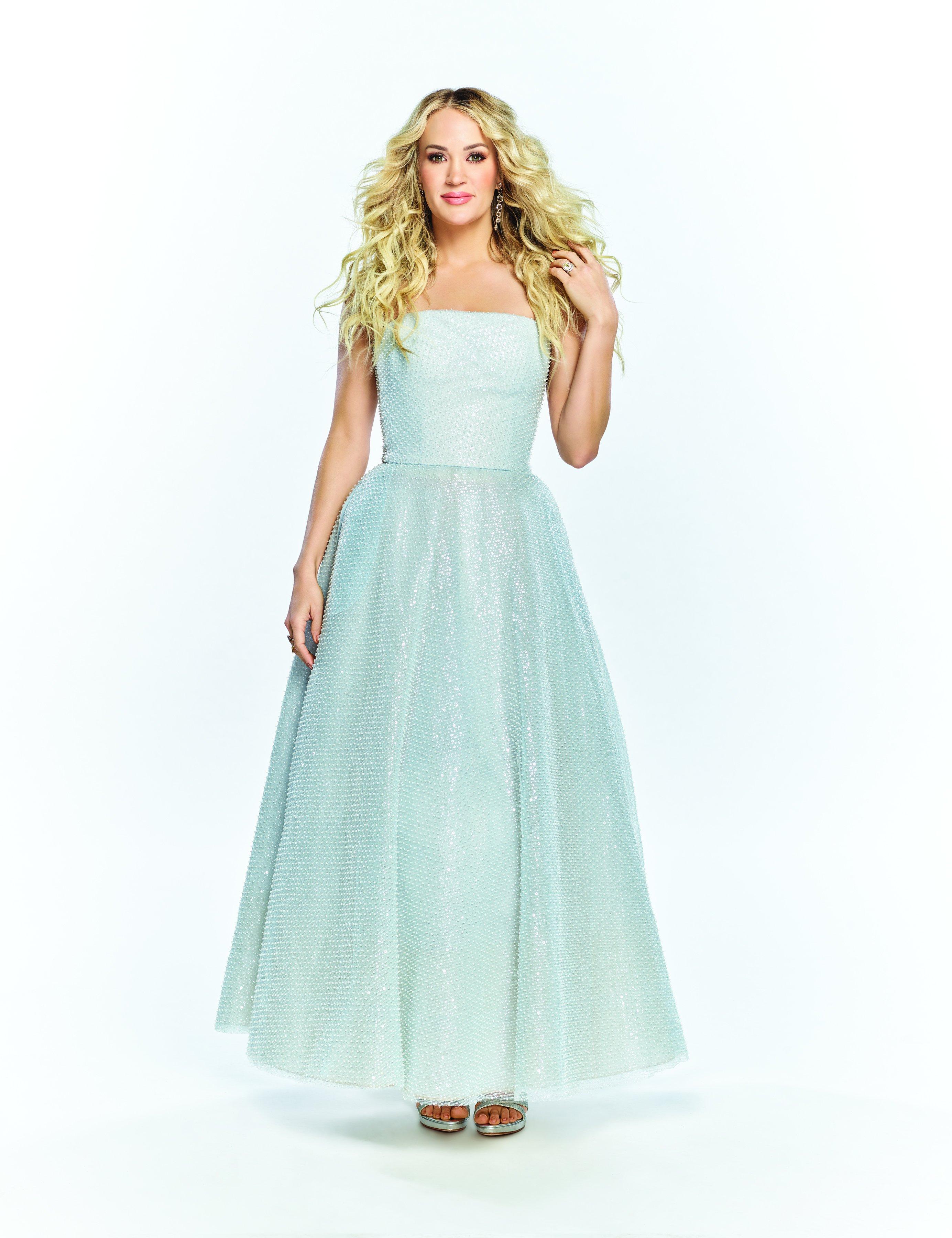
Carrie Underwood
news
Carrie Underwood On Creating Her First Gospel Album, 'My Savior,' Working With CeCe Winans, & Making "Legacy Music"
Carrie Underwood recently spoke with GRAMMY.com about her new album, 'My Savior,' her spiritual journey, learning from gospel legend CeCe Winans, and crafting what she calls "legacy music"
In 2005, fresh off her "American Idol" win, Carrie Underwood, then a rising singer from Oklahoma, scored her first country radio hit, "Jesus, Take The Wheel." Two years later, the faith-based ballad elevated her to another level in her career: a GRAMMY award for Best Female Country Vocal Performance at the 2007 GRAMMY Awards show. (That year she also took home the coveted Best New Artist award.)
Now a seven-time GRAMMY winner, she's notched hits like "Before He Cheats" and "Blown Away," but has never shied away from her spirituality. "Something in the Water," "See You Again," "Temporary Home," and her soul-piercing performance of "How Great Thou Art" alongside Vince Gill during an Academy of Country Music television special in 2015 showed her devotion proudly.
<style>.embed-container { position: relative; padding-bottom: 56.25%; height: 0; overflow: hidden; max-width: 100%; } .embed-container iframe, .embed-container object, .embed-container embed { position: absolute; top: 0; left: 0; width: 100%; height: 100%; }</style><div class='embed-container'><iframe src='https://www.youtube.com/embed/C4Sd5BL4j0A' frameborder='0' allowfullscreen></iframe></div>
Those spiritual leanings come full-circle on her first gospel album, My Savior, released on March 26. Much like last year's holiday album My Gift, Underwood's new project finds her drawing from childhood memories; She sings of attending a rural Baptist church in Oklahoma—listening to Sunday sermons and joining the congregation in singing classics such as "Amazing Grace" and "How Great Thou Art" from an old hymnal.
"It's so great for me because I feel like in recording them, even now I can still feel myself sitting in the church pews next to my parents, hearing my mom sing harmonies and hearing other voices singing in the congregation," Underwood tells GRAMMY.com. "I feel like that just still rings in my ear and it's wonderful, but more importantly, it provides a feeling of comfort and inspiration that hopefully other people can feel as well when they listen to these songs."
Like so many impacted by the ongoing COVID-19 pandemic over the past year, Underwood turned to her faith—and faith-based music—as a source of comfort. She has stayed in Nashville with her husband, Mike Fisher, and their two sons and kept in touch with family members back in Oklahoma from afar. The project's production process made her feel closer to the family she can’t be with at the moment.
"Making this album felt like home, and I haven't been home since Christmas of 2019," Underwood says. "I haven't seen my dad in so long, so it was nice in the middle of the unsureness and chaos of 2020, first to get to make the Christmas album and then to follow it up with more songs that just felt like home."
Carrie Underwood recently spoke with GRAMMY.com about her new album, My Savior, her spiritual journey, learning from gospel legend CeCe Winans, and crafting what she calls "legacy music."
Making this album had to feel like a walk down memory lane for you. What memories do these songs bring to mind?
I've been singing these songs my whole life. Even now I can still feel myself sitting in the church pews next to my parents, hearing my mom sing harmonies and hearing voices from people in the congregation. I feel like that still rings in my ear and it’s wonderful.
Did anyone in your family have suggestions for songs to include on the album?
Everybody always chimes in. Some of them were already on the list. My husband would chime in every once in a while with something that maybe was an older faith-based song, but not necessarily a hymn. He didn't necessarily grow up listening to a lot of the hymns that I did, but he wanted me to do "Give Me Jesus," so maybe someday I can cover that one down the road.
<style>.embed-container { position: relative; padding-bottom: 56.25%; height: 0; overflow: hidden; max-width: 100%; } .embed-container iframe, .embed-container object, .embed-container embed { position: absolute; top: 0; left: 0; width: 100%; height: 100%; }</style><div class='embed-container'><iframe src='https://www.youtube.com/embed/ieajn3NK62c' frameborder='0' allowfullscreen></iframe></div>
How did you narrow down the song choices?
We had the biggest running list. [There were] dozens [of songs]. But you have your pillars—I knew I wanted "Great Is Thy Faithfulness," "How Great Thou Art," "Softly and Tenderly," [and] "Nothing but the Blood of Jesus." We wanted to create diversity in the sound because so many of them were written kind of around the same time period with the same instrumentation. The challenge was making them sound fresh, but still keeping that traditional thing about them that I love.
And so many of them have a lot of verses, but no chorus. It's not a traditional format that we are used to, so for "Nothing but the Blood of Jesus" in particular, that's why we put the "Ohs" in there, to become the little break between verses.
Bear Rinehart from NEEDTOBREATHE sings with you on "Nothing but the Blood of Jesus" and the song has this great soulful sound. How did he become part of this album?
When we started playing around with tempo on this song, we could just hear his voice on it. It took me forever to ask him, but it was one of those things where he actually showed up one Sunday at my church and sat right in front of me. I was like, "Oh my gosh, we've been talking about giving him a call." We were wrapping up the album and it was reaching that point where I needed to ask him. Of course, I chickened out because who wants to start talking work at church?
Then we ended up in a small group having brunch afterward, and he asked me about what I was working on. I was like, “Well, as a matter of fact, you're probably going to get a call within the next couple of days about maybe coming and singing on something.” It does sound so cool, and I loved the way it turned out because [it] was exactly what we were hearing the whole time.<style>.embed-container { position: relative; padding-bottom: 56.25%; height: 0; overflow: hidden; max-width: 100%; } .embed-container iframe, .embed-container object, .embed-container embed { position: absolute; top: 0; left: 0; width: 100%; height: 100%; }</style><div class='embed-container'><iframe src='https://www.youtube.com/embed/u8fKX3xZaMM' frameborder='0' allowfullscreen></iframe></div>
CeCe Winans joins you on "Great Is Thy Faithfulness."
I feel like God was really watching out for this project in so many ways. Her people had called us about something completely separate, and we thought, "This is our open door." She said yes, and within days she was in the studio with me.
She came in, and I felt like we just needed to sit back and let her work her magic because it truly was inspirational. And besides her extremely God-given, powerful, inspiring voice, her presence was just so wonderful to be around. I feel like when I work with legends, I'm a sponge. I want to see what you do and how you do it. So it was equal parts getting to work with her and sing with her, but also learning from her.
You have always included faith-based songs throughout your career, from "Jesus, Take The Wheel" to "Something in the Water." With everything going on in the world, were you nervous at all to put out a specifically faith-based project?
I feel like the answer to all of our problems is Jesus, and like you said, it's not a secret where I stand. And this has been good for my soul. I feel like hopefully when people listen to it, it'll inspire. It'll bring some peace, and hopefully some good, positive feelings.
<style>.embed-container { position: relative; padding-bottom: 56.25%; height: 0; overflow: hidden; max-width: 100%; } .embed-container iframe, .embed-container object, .embed-container embed { position: absolute; top: 0; left: 0; width: 100%; height: 100%; }</style><div class='embed-container'><iframe src='https://www.youtube.com/embed/mH9kYn4L8TI' frameborder='0' allowfullscreen></iframe></div>
Do you recall when you first felt like you had a personal connection with God?
Well, I was always in church. There was always an altar call song. For our church, it was "Just As I Am," and that's on the album. I might've been 10 years old, something like that. When you grow up around it, it means you have to make that decision for yourself. I remember making that trip down the aisle, knowing that was what I wanted to do.
When do you feel most connected spiritually?
I've been singing my whole life, even before I knew that this [was] going to be what I do. I'm a bird. I sing. It's what I do. When I sing songs like this, I definitely feel connected. With the Christmas album, too. I loved getting to be in the studio and sing in more intimate settings, because when there [are] people in front of you, you're worried about, "What do they see? What do they hear? Are they happy? Do they like it?" You want to put on a good show. But in the studio there's nobody else there, it's just me and God in the room, and I get to just sing to Jesus.
<style>.embed-container { position: relative; padding-bottom: 56.25%; height: 0; overflow: hidden; max-width: 100%; } .embed-container iframe, .embed-container object, .embed-container embed { position: absolute; top: 0; left: 0; width: 100%; height: 100%; }</style><div class='embed-container'><iframe src='https://www.youtube.com/embed/h5OLMQ7WdD8' frameborder='0' allowfullscreen></iframe></div>
Speaking of performing, you recently announced you will celebrate the album's release with a concert at Nashville’s Ryman Auditorium on Easter Sunday, April 4, and that it will livestream from your official Facebook page.
Well, we're missing performing. Under normal circumstances, you make an album and then you get to tour it in front of an audience. Obviously, right now, we're not quite there yet, but we still want a project this special to have that moment. We decided to go to our country music Mother Church, the Ryman, because it is spiritual. You walk in there and you feel it. I think it's going to be an inspiring morning.
There have been a lot of collaborations between country artists and CCM/gospel artists recently—Chris Tomlin and Florida Georgia Line, and Dolly Parton's work with Zach Williams and for King & Country, for example. Are there other CCM artists you would want to work with in the future?
I would love definitely for people who are strong in their faith to sing about it. I feel like the more of us that make it a norm and do our thing—I've already had other people in the music industry who are friends in mine say, "I've always wanted to do this, but would wonder what people would think about it." There are a few of us, like Hillary Scott and Dolly, we're just making music and trying to stay true to ourselves. When that's part of you, I feel like it's easy, and maybe more artists will feel like it's a safe space to be able to do that.
You never know, as far as me working with other Christian music artists. I would never count any of that out, but everything just has to feel right and be right in the moment.
You have two young sons, Isaiah and Jacob. So many congregations lean toward praise and worship music, or modern-day hymns. This album feels like one way to pass down these traditional hymns you grew up with to a new generation of listeners.
I did grow up with these songs and like you said, so many churches do praise and worship. Every once in a while at our church, they'll sneak in a chorus or a bit of a hymn, which is always nice for me because I love them. But I do feel like so many younger people didn't necessarily grow up with these songs. Maybe we are, in a way, introducing some of these to a new generation. I sing them around the house, and I love that my boys will have my voice on these songs, as they get older.
Legacy music is how I like to think of it. I love all the songs and all the albums that I have ever made and I have a special connection with each one. But I feel like this is the real stuff, the heart stuff, the soul stuff.

Photo: Tim Mosenfelder/Getty Images
feature
How 'Petty Country: A Country Music Celebration' Makes Tom Petty A Posthumous Crossover Sensation
On 'Petty Country,' Nashville luminaries from Willie Nelson to Dolly Parton and Luke Combs make Tom Petty’s simple, profound, and earthy songs their own — to tremendous results.
If Tom Petty and the Heartbreakers landed in 2024, how would we define them? For fans of the beloved heartland rockers and their very missed leader, it's a compelling question.
"It's not active rock. It's not mainstream rock. It's not country. It would really fall in that Americana vein," says Scott Borchetta, the founder of Big Machine Label Group. "When you think about what his lyrics were and are about, it's really about the American condition."
To Borchetta, these extended to everything in Petty's universe — his principled public statements, his man-of-the-people crusades against the music industry. "He was an American rebel with a cause," Borchetta says. And when you fuse that attitude with big melodies, bigger choruses, and a grounded, earthy perspective — well, there's a lot for country fans to love.
That's what Coran Capshaw of Red Light Management bet on when he posited the idea of Petty Country: A Country Music Celebration of Tom Petty, a tribute album released June 21. Featuring leading lights like Dolly Parton ("Southern Accents"), Willie and Lukas Nelson ("Angel Dream (No. 2)," Luke Combs ("Runnin' Down a Dream"), Dierks Bentley ("American Girl,") Wynonna and Lainey Wilson ("Refugee"), and other country luminaries covering Tom Petty classics, Petty Country is a seamless union of musical worlds.
Which makes perfect sense: on a core level, Petty, and his band of brothers, were absolutely steeped in country — after all, they grew up in the South — Gainesville, Florida.
"Tom loved all country music. He went pretty deep into the Carter Family, and "Will the Circle Be Unbroken?" and the folk, Americana heart of it," says Petty's daughter, Adria, who helps run his estate. "Hank Williams, and even Ernest Tubb and Patsy Cline… as a songwriter, I think a lot of that real original music influenced him enormously." (The Flying Burrito Brothers, and the Byrds' Gram Parsons-hijacked country phase, were also foundational.)
A key architect of Petty Country was the man's longtime producer, George Drakoulias. "He's worked with Dad for a hundred years since [1994's] Wildflowers, and he has super exquisite taste," Adria says.
In reaching out to prospective contributors, he and fellow music supervisor Randall Poster started at the top: none other than Willie Nelson and Dolly Parton. "Having Willie and Dolly made people stand up and pay attention," Dreakoulias told Rolling Stone, and the Nashville floodgates were opened: Thomas Rhett ("Wildflowers"), Brothers Osborne ("I Won't Back Down"), Lady A ("Stop Draggin' My Heart Around"), and so many others.
Each artist gave Petty's work a distinctive, personal spin. Luke Combs jets down the highway of "Runnin' Down the Dream" like he was born to ride. Along with Yo-Yo Ma and founding Heartbreakers keyboardist Benmont Tench, Rhiannon Giddens scoops out the electronics and plumbs the droning, haunting essence of "Don't Come Around Here No More."
And where a lesser tribute album would have lacquered over the songs with homogenous Nashville production, Petty Country is the opposite.
"I'm not a fan of having a singular producer on records like this. I want each one of them to be their own little crown jewel," Borchetta says. "That's going to give us a better opportunity for them to make the record in their own image."
This could mean a take that hews to the original, or casts an entirely new light on it. "Dierks called up and said, 'Hey, do you think we would be all right doing a little bit more of a bluegrass feel to it?' I was like, 'Absolutely. If you hear it, go get it.'"
"It had the diversity that the Petty women like on the records," Adria says, elaborating that they wanted women and people of color on the roster. "We like to see those tributes to Tom reflect his values; he was always very pro-woman, which is why he has such outspoken women [laughs] in his wake."
Two of Petty Country's unquestionable highlights are by women. Margo Price chose "Ways to Be Wicked," a cut so deep that even the hardcore Petty faithful might not know it; the Let Me Up (I've Had Enough) outtake was buried on disc six of the 1995 boxed set Playback.
"Man, it's just one of those songs that gets in your veins," Price says. "He really knew how to twist the knife — that chorus, 'There's so many ways to be wicked, but you don't know one little thing about love.'" Founding Heartbreakers guitarist Mike Campbell features on the dark, driving banger.
And all interviewed for this article are agog over Dolly Parton's commanding take on "Southern Accents" — the title track of the band's lumpy, complicated, vulnerable 1985 album of the same name. "It's just revelatory… it brings me to my knees," Adria says. "It's just a phenomenal version I know my dad would've absolutely loved."
"It's one of Dolly's best vocals ever, and it's hair-raising," Borchetta says. "You could tell she really felt that track, and what the song was about."
Adria is filled with profuse gratitude for the artists preserving and carrying her dad's legacy.
"I'm really touched that these musicians showed up for my dad," she says. "A lot of people don't want to show up for anything that's not making money for them, or in service to their career, and we really appreciate it… I owe great debt to all of these artists and their managers for making the time to think about our old man like that."
Indeed, in Nashville and beyond, we've all been thinking about her old man, especially since his untimely passing in 2017. We'll never forget him — and will strum and sing these simple, heartfelt, and profound songs for years to come.
Let Your Heart Be Your Guide: Adria Petty, Mike Campbell & More On The Enduring Significance Of Tom Petty's Wildflowers
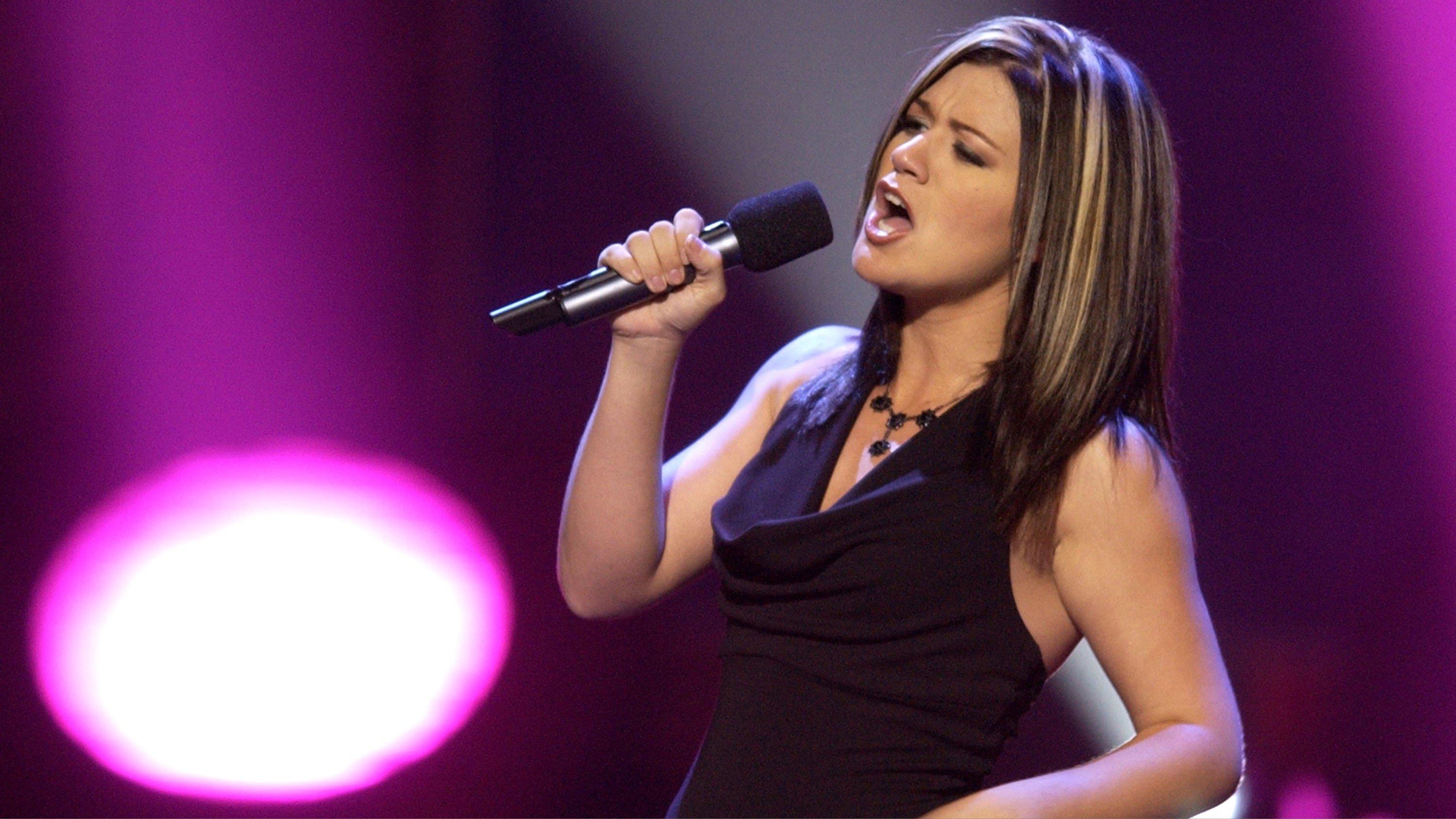
Photo: Steve Granitz / GettyImages
news
On This Day In Music: "American Idol" Premieres On Fox Network
For decades, "American Idol" has been instrumental in discovering some of music’s biggest names and pioneering the reality TV contest genre. As the show enters its 22nd run, here’s a look at how it has become an iconic household staple across the country.
For countless Americans, "American Idol" is intertwined with core memories as a show that had families eagerly glued to their TVs twice a week. It brought generations together, creating moments of both suspense and excitement that are still remembered today, as the show continues to run in its 22nd season.
Created by visionary entrepreneur Simon Fuller, "American Idol" premiered on June 11, 2002, as a fresh spin-off of the British program "Pop Idol." It revolutionized how Americans engaged with reality TV through its interactive, viewer-driven voting system, which encouraged audience participation in the success of their favorite contestants. The show also offered viewers a glimpse into contestants' candid backstories and personal journeys, anchoring emotional investment and skyrocketing the show's popularity.
The show's debut season featured a dynamic trio of judges: singer Paula Abdul, TV personality Simon Cowell, and producer Randy Jackson. Their contrasting personalities brewed a chemistry as captivating as the hopeful performances. Abdul’s warmth, Cowell's blunt wit, and Jackson’s humor added extra layers of entertainment, making the twice a week broadcasts a must-watch.
The first season of "American Idol" also unforgettably introduced the country to Kelly Clarkson. Since her debut — with a heart-tugging backstory about being the average girl-next-door with big dreams — Clarkson has gone on to tour the world, host her own TV talk show, and secured her spot as one of music’s most beloved talents.
"I had dreams since I was a little girl that I wanted to be on the GRAMMYs, or some award show and sing on there," Clarkson mentioned in her pre-audition interview. Flash forward 22 years, the pop singer has accumulated 17 GRAMMY nominations and three wins, propelled by a powerful vocal gift.
Other artists who launched their careers from the show's platform include Jordin Sparks, Carrie Underwood, Adam Lambert, and Jennifer Hudson, who each serve as testament to the show’s impact in music.
"American Idol" has not only opened our eyes to some of our favorite musicians, but it also has given us some of our favorite pop culture moments.
A video that frequently resurfaces on social media captures a memorable moment between Katy Perry and contestant Noah Davis, where they bond over the slang term 'wig'.
"No, it’s not your language. It’s just for us," Perry joked to her fellow judges, Lionel Richie and Luke Bryan, when they questioned the term’s meaning.
After two decades on air, "American Idol" has etched a lasting legacy in pop culture. It has paved the way for other reality TV music shows and created lasting memories for music fans along the way.
“The show transcends age, gender, ethnicity, everything,” Underwood told Billboard in 2005.
Explore More History-Making Moments In Music

On This Day In Music: Spice Girls Release "Wannabe," Their Iconic Debut Single
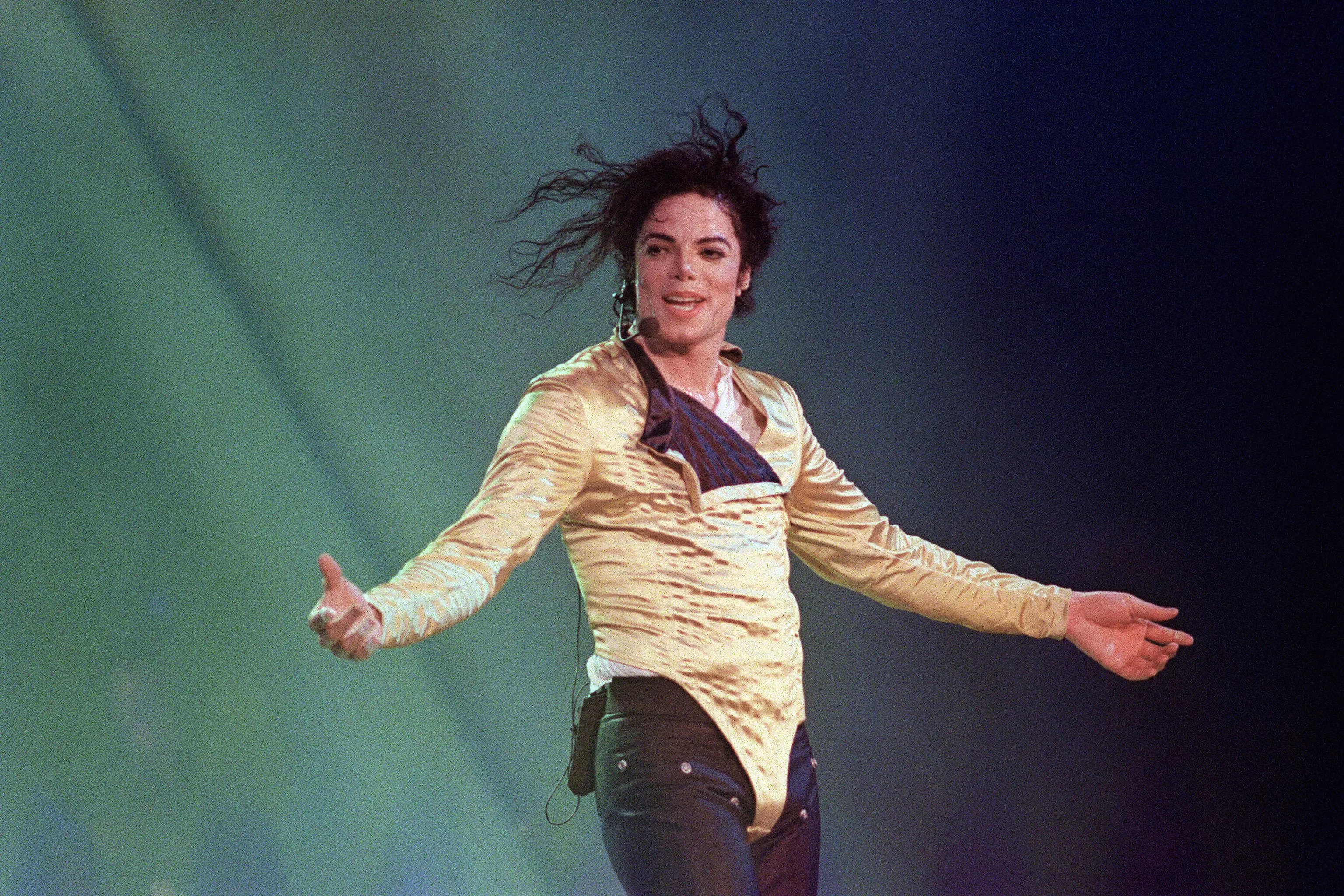
On This Day In Music: Michael Jackson Passes Away In Los Angeles At Age 50
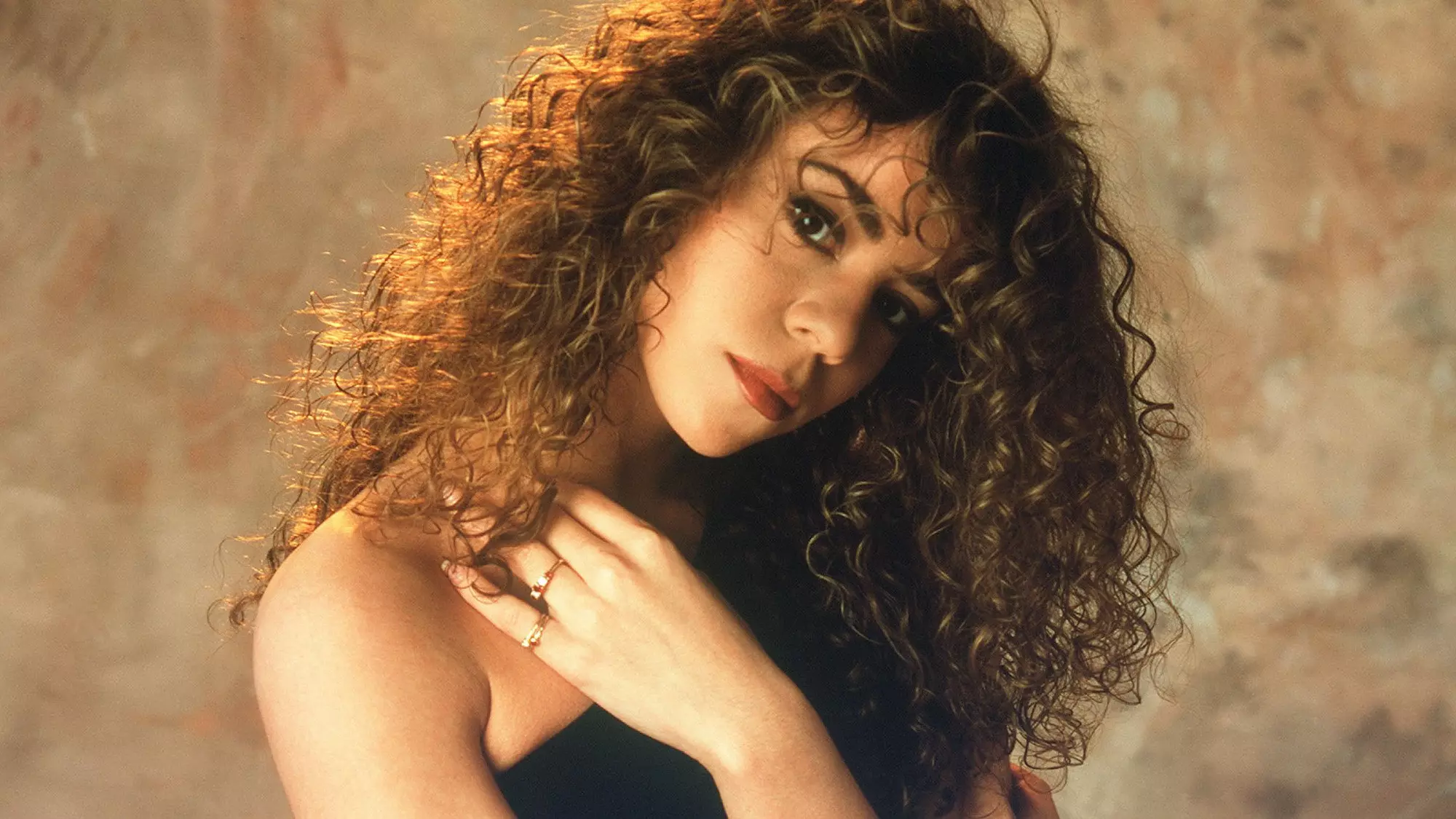
On This Day In Music: Mariah Carey Releases Her Self-Titled Debut Album
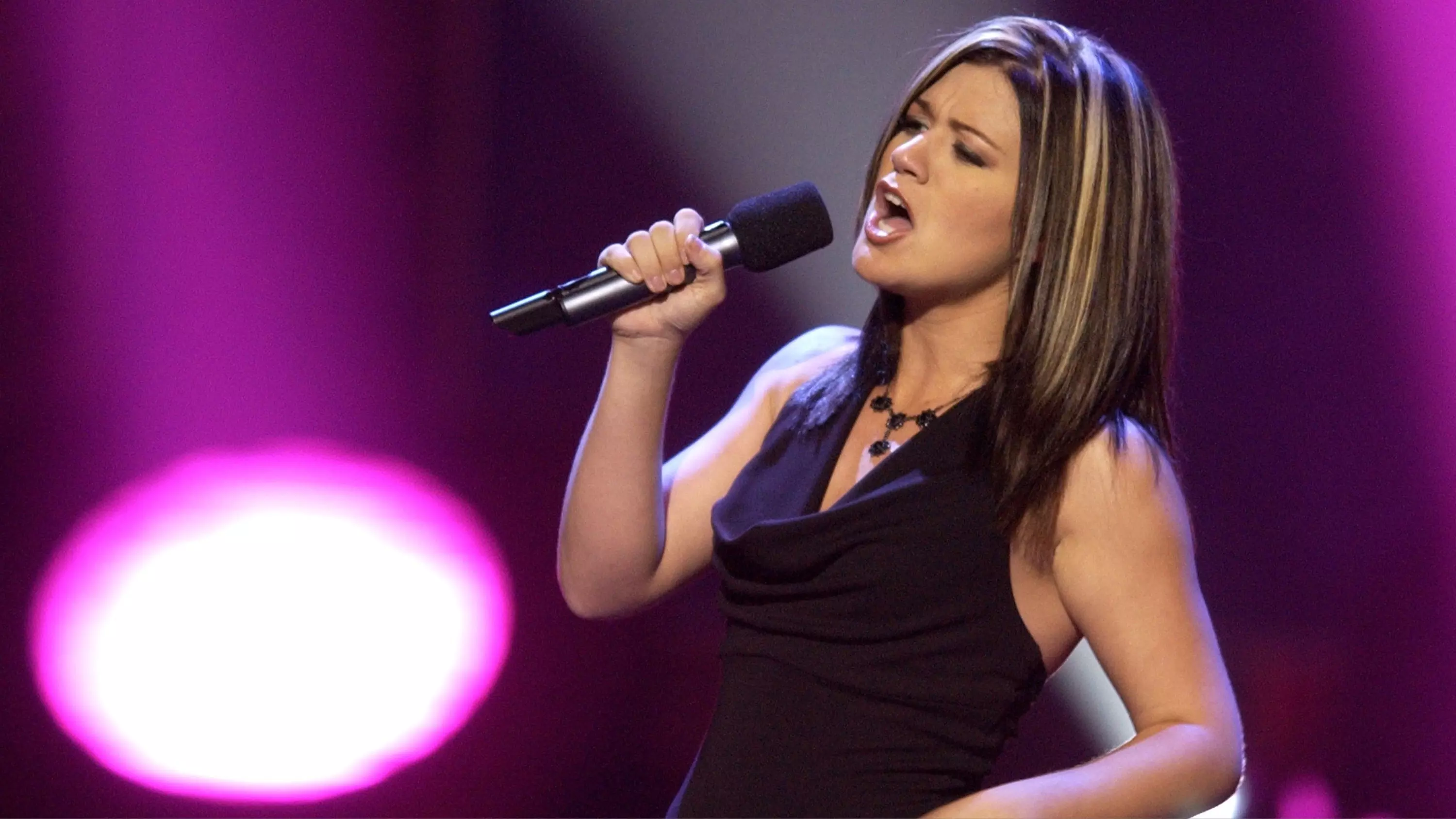
On This Day In Music: "American Idol" Premieres On Fox Network
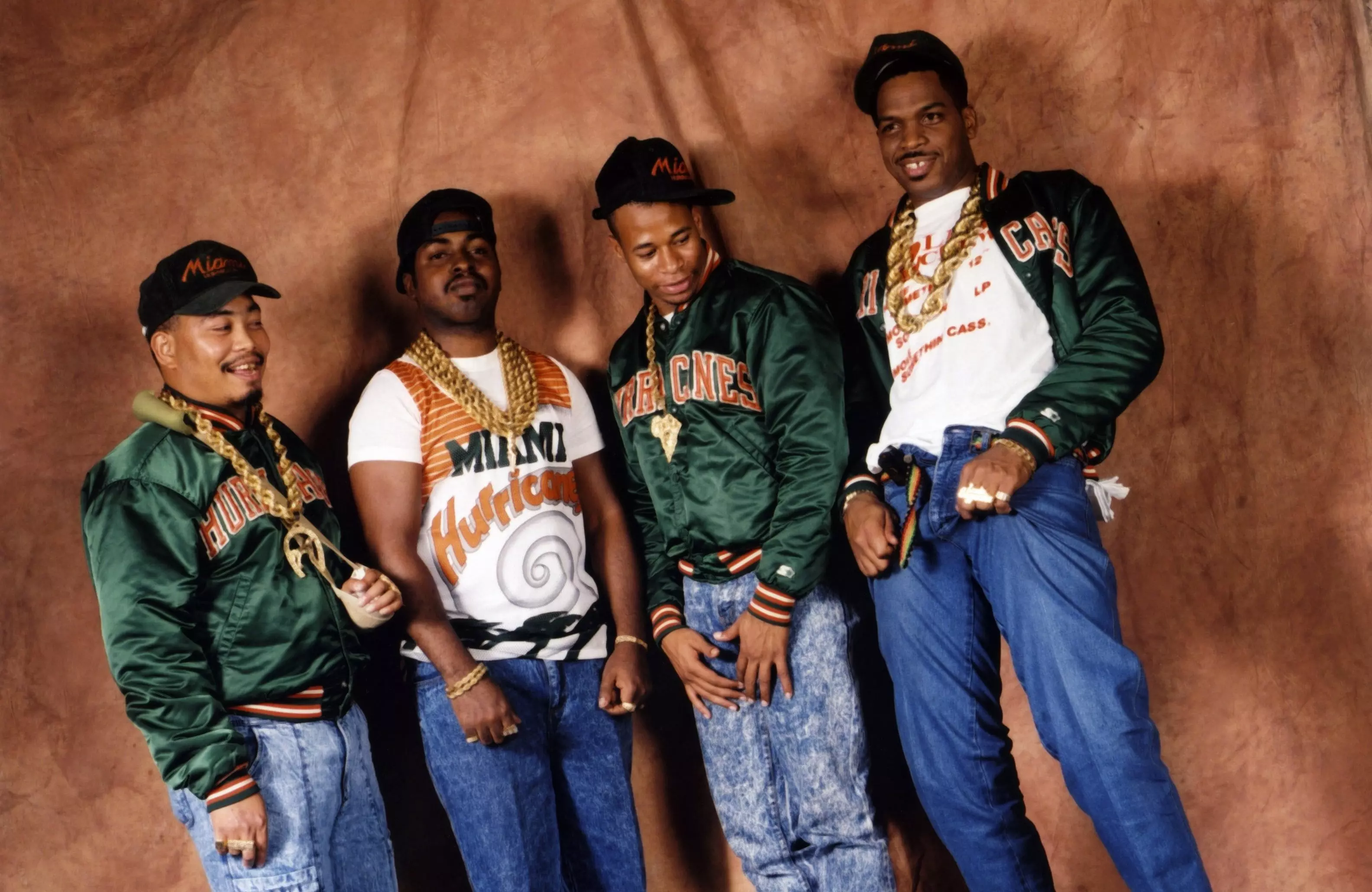
On This Day In Music: 2 Live Crew's 'As Nasty As They Wanna Be' Becomes First Album Declared Legally Obscene, Anticipates First Amendment Cases
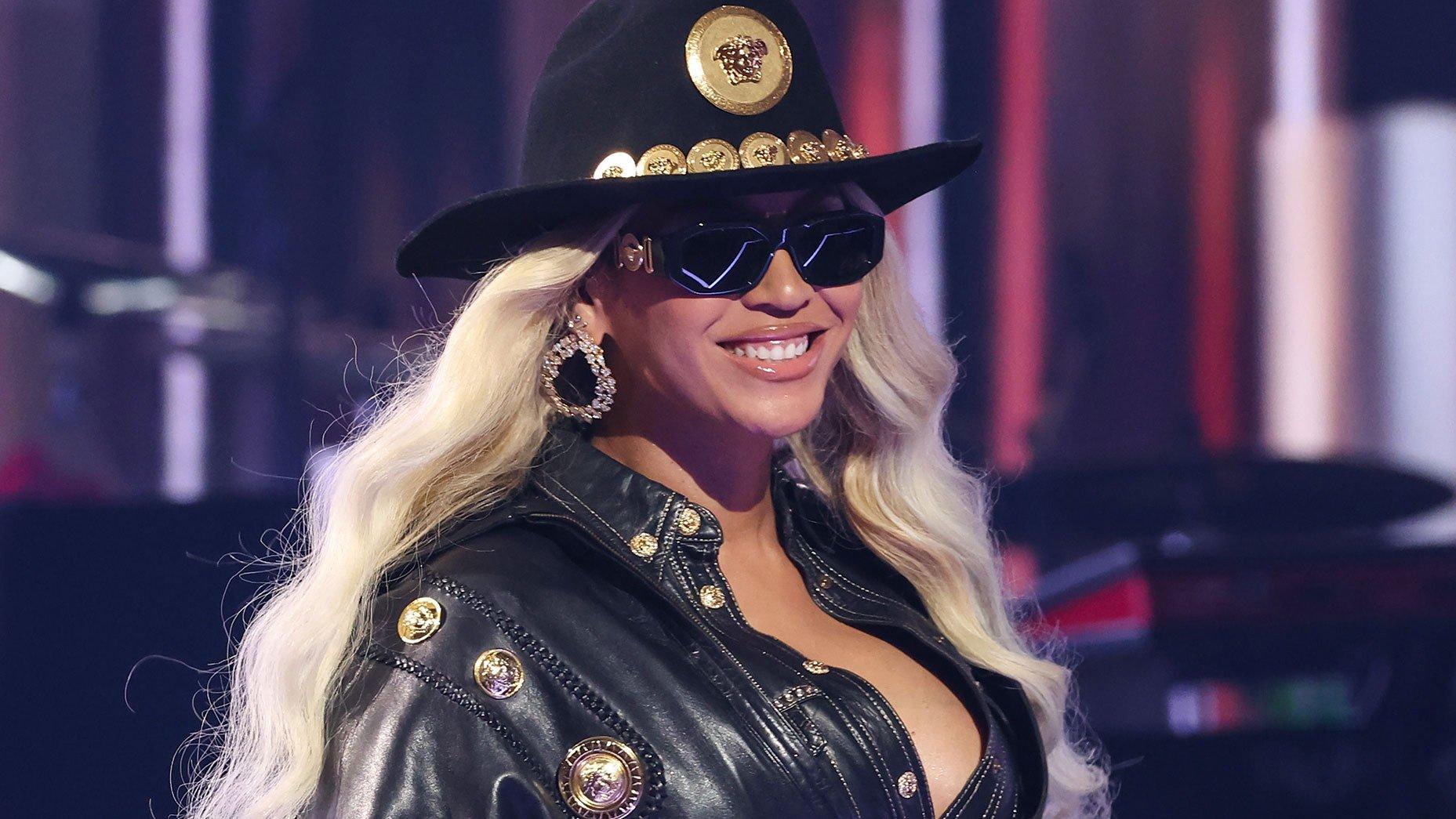
Photo: Kevin Winter/Getty Images for iHeartRadio
feature
Beyond Country: All The Genres Beyoncé Explores On 'Cowboy Carter'
On 'COWBOY CARTER,' Beyoncé is free. Her eighth studio album is an unbridled exploration of musical genres — from country to opera and R&B — that celebrates the fluidity of music and her Texas roots.
"Genres are a funny little concept, aren't they? In theory, they have a simple definition that's easy to understand. But in practice, well, some may feel confined."
With those words, spoken on "SPAGHETTII" by Linda Martell — the first commercially successful Black female artist in country music and the first to play the Grand Ole Opry solo — Beyoncé provides a proxy response to her original call on Instagram 10 days before COWBOY CARTER was released: "This ain’t a Country album. This is a “Beyoncé” album."
She delivered on that promise with intent. Through a mix of homage and innovation, Beyoncé's latest is a 27-track testament to her boundless musicality and draws from a rich aural palette. In addition to its country leanings, COWBOY CARTER includes everything from the soulful depths of gospel to the intricate layers of opera.
Beyoncé's stance is clear: she's not here to fit into a box. From the heartfelt tribute in "BLACKBIIRD" to the genre-blurring tracks like "YA YA," Beyoncé uses her platform to elevate the conversation around genre, culture, and history. She doesn't claim country music; she illuminates its roots and wings, celebrating the Black artists who've shaped its essence.
The collective album proves no genre was created or remains in isolation. It's a concept stoked in the words of the opening track, "AMERIICAN REQUIEM" when Beyonce reflects, "Nothing really ends / For things to stay the same they have to change again." For country, and all popular genres of music to exist they have to evolve. No sound ever stays the same.
COWBOY CARTER's narrative arc, from "AMERICAN REQUIEM" to "AMEN," is a journey through American music's heart and soul, paying tribute to its origins while charting a path forward. This album isn't just an exploration of musical heritage; it's an act of freedom and a declaration of the multifaceted influence of Black culture on American pop culture.
Here's a closer look at some of some of the musical genres touched on in act ii, the second release of an anticipated trilogy by Beyoncé, the most GRAMMY-winning artist of all-time:
Country
Before COWBOY CARTER was even released, Beyoncé sparked critical discussion over the role of herself and all Black artists in country music. Yet COWBOY CARTER doesn't stake a claim on country music. Rather, it spotlights the genre through collaborations with legends and modern icons, while championing the message that country music, like all popular American music and culture, has always been built on the labor and love of Black lives.
It's a reckoning acknowledged not only by Beyoncé's personal connection to country music growing up in Texas, but the role Black artists have played in country music rooted in gospel, blues, and folk music.
Enter The World Of Beyoncé
Beyond Country: All The Genres Beyoncé Explores On 'Cowboy Carter'
Beyoncé Is The Genre-Bending Queen On 'Cowboy Carter': 5 Takeaways From Her New Album
Beyoncé's New Album 'Cowboy Carter' Is Here: Check Out The Featured Artists, Cover Songs, And Tracklist
Everything We Know About Beyoncé's New Album, 'Cowboy Carter': Two New Singles, Tracklist, A Shift To Country & More
How Beyoncé Is Honoring Black Music History With 'Cowboy Carter,' "Texas Hold Em," 'Renaissance' & More
Songbook: The Complete Guide To The Albums, Visuals & Performances That Made Beyoncé A Cultural Force
A Timeline Of Beyoncé's GRAMMY Moments, From Her First Win With Destiny's Child to Making History With 'Renaissance'
How Many GRAMMYs Has Beyoncé Won? 10 Questions About The 'Renaissance' Singer Answered

Watch Beyoncé Make GRAMMY History With Her 32nd Win In 2023 | GRAMMY Rewind
6 Takeaways From 'Renaissance: A Film By Beyoncé'
Beyoncé's 'Dangerously In Love' Turns 20: How The Solo Debut Foreshadowed The Singer's Icon Status
5 Takeaways From Beyoncé's New Album 'Renaissance'

How Beyoncé Has Empowered The Black Community Across Her Music And Art | Black Sounds Beautiful

The Creative Rebirth Of Beyoncé On '4' | For The Record
Country legends, Dolly Parton ("DOLLY P", "JOLENE," and "TYRANT"), Willie Nelson ("SMOKE HOUR" and "SMOKE HOUR II"), and Martell ("SPAGHETTII and "THE LINDA MARTELL SHOW") serve mainly as spoken-word collaborators, becoming MCs for Queen Bey. Some of the most prolific country music legends receiving her in a space where she has been made to feel unwelcome in music (most notably with the racism surrounding her 2016 CMA performance of "Daddy Lessons" with the Dixie Chicks) provides a prolific release of industry levies. Martell, a woman who trod the dark country road before Bey, finally getting her much-deserved dues appears as an almost pre-ordained and poetic act of justice.
"BLACKBIIRD," a version of the Beatles' civil rights era song of encouragement and hope for the struggle of Black women is led softly by Beyoncé, backed by a quartet of Black female contemporary country songbirds: Tanner Adell, Brittney Spencer, Tiera Kennedy, and Reyna Roberts.
Beyoncé holds space for others, using the power of her star to shine a light on those around her. These inclusions rebuke nay-sayers who quipped pre-release that she was stealing attention from other Black country artists. It also flies in the faces that shunned and discriminated against her, serving as an example of how to do better. The reality that Beyoncé wasn't stealing a spotlight, but building a stage for fellow artists, is a case study in how success for one begets success for others.
Read more: 8 Country Crossover Artists You Should Know: Ray Charles, The Beastie Boys, Cyndi Lauper & More
Gospel, Blues, & Folk (American Roots)
As is Beyoncé's way, she mounts a case for country music with evidence to back up her testimony. She meanders a course through a sequence of styles that serve as the genre's foundation: gospel, blues, and folk music.
"AMERIICAN REQUIEM" and "AMEN" bookend the album with gospel-inspired lyrics and choir vocals. The opener sets up a reflective sermon buoyed by the sounds of a reverberating church organ, while the closer, with its introspective lyrics, pleads for mercy and redemption. The main verse on "AMEN", "This house was built with blood and bone/ The statues they made were beautiful/ But they were lies of stone," is complemented by a blend of piano, and choral harmonies.
Hymnal references are interlaced throughout the album, particularly in songs like "II HANDS II HEAVEN" and in the lyrical nuances on "JUST FOR FUN." In the later track, Beyoncé's voice soars with gratitude in a powerful delivery of the lines, "Time heals everything / I don't need anything / Hallelujah, I pray to her."
The gospel-inspired, blues-based "16 CARRIAGES" reflects the rich history of country songs borrowing from the blues while simultaneously calling back to songs sung by field laborers in the colonial American South. "Sixteen dollars, workin' all day/ Ain't got time to waste, I got art to make" serves as the exhausted plea of an artist working tirelessly long hours in dedication to a better life.
Rhiannon Giddens, a celebrated musician-scholar, two-time GRAMMY winner, and Pulitzer Prize recipient, infuses "TEXAS HOLD 'EM" with her profound understanding of American folk, country, and blues. She plays the viola and banjo, the latter tracing its origins to Sub-Saharan West Africa and the lutes of ancient Egypt. Through her skilled plucking and bending of the strings, Giddens bridges the rich musical heritage of Africa and the South with the soul of country, blues, and folk music.
Pop, Funk, Soul & Rock 'n' Roll
All in, Beyoncé is a pop star who is wrestling with labels placed on her 27-year career in COWBOY CARTER. Fittingly, she brings in two other pop artists known for swimming in the brackish water between country and pop, Miley Cyrus and Post Malone. Her intentional inclusion of two artists who have blurred genres without much cross-examination begs the question, Why should Beyoncé's sound be segregated to a different realm?
On "YA YA" Linda Martell returns as the listener's sonic sentinel, introducing the track like a lesson plan: "This particular tune stretches across a range of genres. And that’s what makes it a unique listening experience." The tune sinks into the strummed chords of Nancy Sinatra's "These Boots Are Made for Walkin'" before leaping into a fiery dance track that features reimagined lyrics from the Beach Boys, with soulful vocal flourishes and breaks that show the throughline connection between '60s era rock, funk, and pop music.
Robert Randolph lends his hands on "16 CARRIAGES" with a funk-infused grapple on his pedal-steel guitar. It's a style he honed through his early years touring and recording with his family band and later in his career as an in-demand collaborator working with names including the Allman Brothers, and Norah Jones.
The lesson is solidified as the album transitions into an interlude on "OH LOUISIANA," featuring a sped-up sample of a classic track by Chuck Berry. This moment emphasizes the pop superstar's nod to civil rights era music history, spotlighting a controversial artist celebrated for his pioneering contributions to rock 'n' roll. (It's a part of music history Beyoncé knows well, after starring as Etta James in the 2008 film Cadillac Records, a veiled biopic of the legendary Chicago label Chess Records.)
Classical & Opera
Opera was missing from many listeners' Beyoncé Bingo card, but didn't surprise those that know her background. Beyoncé was trained for over a decade starting at an early age by her voice teacher David Lee Brewer, a retired opera singer who once lived with the Knowles family.
COWBOY CARTER gives sing-along fans a 101 opera class with "DAUGHTER." In Italian, Beyoncé sings passages from the 1783 Italian opera "Caro Mio Ben," composed by Giuseppe Tommaso Giovanni Giordani. The aria is a classic piece of vocal training that fittingly shows off her full range — taking us back to the earliest days of her vocal teachings.
Hip-Hop & R&B
Midway through the album on "SPAGHETTII" Beyoncé announces, "I ain't no regular singer, now come get everythin' you came for," landing right where expectations have confined her: in the throes of a romping beat, experimenting with sounds that blend hip-hop with R&B and soul. The track notably highlights the talent of Nigerian American singer/rapper Shaboozey, who also shows up to the rodeo on "SWEET HONEY BUCKIN'" brandishing his unique mix of hip-hop, folk-pop, and country music.
Beyoncé worked with longtime collaborator Raphael Saadiq on this album, a career legend in the R&B industry, who lends his mark to several tracks on which he wrote, produced, and played multiple instruments. Beyoncé also utilizes the Louisiana songwriter Willie Jones on "JUST FOR FUN," an artist who draws on a contemporary blend of country, Southern rap, and R&B in the hymnal ballad.
The violin-heavy "TYRANT" and "SPAGHETTII" both underscore hip-hop's long love affair with the classical string instrument (See: Common's "Be," and Wu Tang Clan's "Reunited" as the tip of that particular iceberg) with a blend of soulful R&B lyrics paired with beat-based instrumentalization.
In a world quick to draw lines and label sounds, Beyoncé's COWBOY CARTER stands as a vibrant mosaic of musical influence and innovation. Ultimately, Beyoncé's COWBOY CARTER isn't seeking anyone's acceptance. As a Texan once told she didn't belong, her critical response claps back at this exclusion. It's also a reminder that in the hands of a true artist, music is limitless.
Run The World: Why Beyoncé Is One Of The Most Influential Women In Music History
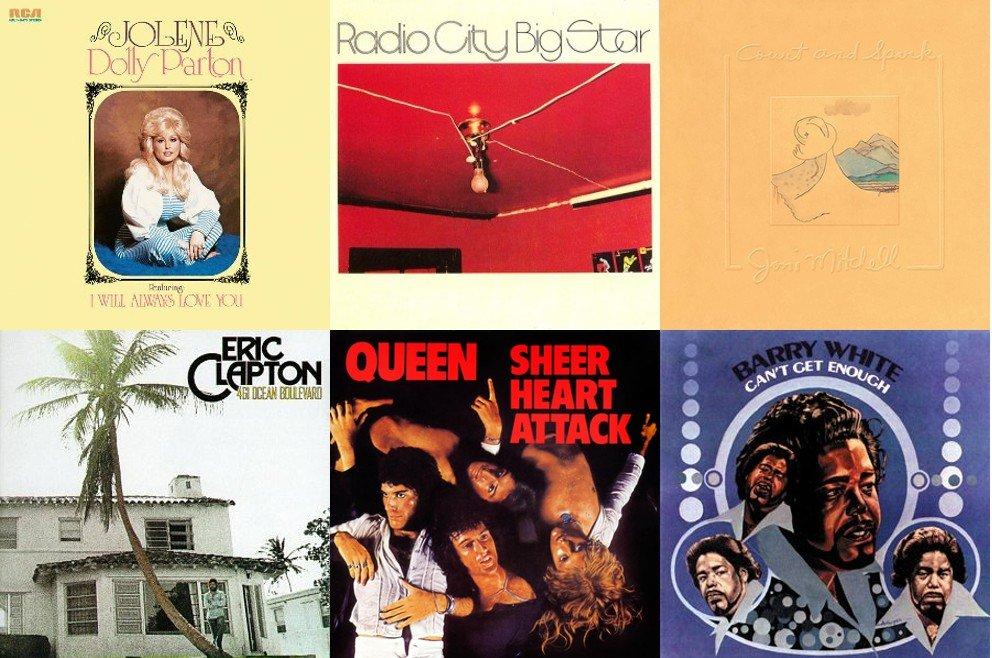
list
21 Albums Turning 50 In 2024: 'Diamond Dogs,' 'Jolene,' 'Natty Dread' & More
Dozens of albums were released in 1974 and, 50 years later, continue to stand the test of time. GRAMMY.com reflects on 21 records that demand another look and are guaranteed to hook first-time listeners.
Despite claims by surveyed CNN readers, 1974 was not a year marked by bad music. The Ramones played their first gig. ABBA won Eurovision with the earworm "Waterloo," which became an international hit and launched the Swedes to stardom. Those 365 days were marked by chart-topping debuts, British bangers and prog-rock dystopian masterpieces. Disenchantment, southern pride, pencil thin mustaches and tongue-in-cheek warnings to "not eat yellow snow" filled the soundwaves.
1974 was defined by uncertainty and chaos following a prolonged period of crisis. The ongoing OPEC oil embargo and the resulting energy shortage caused skyrocketing inflation, exacerbating the national turmoil that preceded President Nixon’s resignation following the Watergate scandal. Other major events also shaped the zeitgeist: Stephen King published his first novel, Carrie, Muhammad Ali and George Foreman slugged it out for the heavyweight title at "The Rumble in the Jungle," and People Magazine published its first issue.
Musicians reflected a general malaise. Themes of imprisonment, disillusionment and depression — delivered with sardonic wit and sarcasm — found their way on many of the records released that year. The mood reflects a few of the many reasons these artistic works still resonate.
From reggae to rock, cosmic country to folk fused with jazz, to the introduction of a new Afro-Trinidadian music style, take a trip back 18,262 days to recall 20 albums celebrating their 50th anniversaries in 2024.
Joni Mitchell - Court & Spark
Joni Mitchell’s Court & Spark is often hailed as the pinnacle of her artistic career and highlights the singer/songwriter’s growing interest in jazz, backed by a who’s who of West Coast session musicians including members of the Crusaders and L.A. Express.
As her most commercially successful record, the nine-time GRAMMY winner presents a mix of playful and somber songs. In an introspective tone, Mitchell searches for freedom from the shackles of big-city life and grapples with the complexities of love lost and found. The record went platinum — it hit No.1 on the Billboard charts in her native Canada and No. 2 in the U.S., received three GRAMMY nominations and featured a pair of hits: "Help Me" (her only career Top 10) and "Free Man in Paris," an autobiographical song about music mogul David Geffen.
Gordon Lightfoot - Sundown
In 2023 we lost legendary songwriter Gordon Lightfoot. He left behind a treasure trove of country-folk classics, several featured on his album Sundown. These songs resonated deeply with teenagers who came of age in the early to mid-1970s — many sang along in their bedrooms and learned to strum these storied songs on acoustic guitars.
Recorded in Toronto, at Eastern Sound Studios, the album includes the only No.1 Billboard topper of the singer/songwriter’s career. The title cut, "Sundown," speaks of "a hard-loving woman, got me feeling mean" and hit No. 1 on both the pop and the adult contemporary charts.
In Canada, the album hit No.1 on the RPM Top 100 in and stayed there for five consecutive weeks. A second single, "Carefree Highway," peaked at the tenth spot on the Billboard Hot 100, but hit No.1 on the Easy Listening charts.
Eric Clapton - 461 Ocean Boulevard
Eric Clapton’s 461 Ocean Boulevard sold more than two million copies worldwide. His second solo studio record followed a three-year absence while Clapton battled heroin addiction. The record’s title is the address where "Slowhand" stayed in the Sunshine State while recording this record at Miami’s Criteria Studios.
A mix of blues, funk and soulful rock, only two of the 10 songs were penned by the Englishman. Clapton’s cover of Bob Marley’s "I Shot the Sheriff," was a massive hit for the 17-time GRAMMY winner and the only No.1 of his career, eclipsing the Top 10 in nine countries. In 2003, the guitar virtuoso’s version of the reggae song was inducted into the GRAMMY Hall of Fame.
Lynyrd Skynyrd - Second Helping
No sophomore slump here. This "second helping" from these good ole boys is a serious serving of classic southern rock ‘n’ roll with cupfuls of soul. Following the commercial success of their debut the previous year, Lynyrd Skynyrd’s second studio album featured the band’s biggest hit: "Sweet Home Alabama."
The anthem is a celebration of Southern pride; it was written in response to two Neil Young songs ("Alabama" and "Southern Man") that critiqued the land below the Mason-Dixon line. The song was the band’s only Top 10, peaking at No. 8 on the Billboard Top 100. Recorded primarily at the Record Plant in Los Angeles, other songs worth a second listen here include: the swampy cover of J.J. Cale's "Call Me The Breeze," the boogie-woogie foot-stomper "Don’t Ask Me No Questions" and the country-rocker "The Ballad of Curtis Loew."
Bad Company - Bad Company
A little bit of blues, a token ballad, and plenty of hard-edged rock, Bad Company released a dazzling self-titled debut album. The English band formed from the crumbs left behind by a few other British groups: ex-Free band members including singer Paul Rodgers and drummer Simon Kirke, former King Crimson member bassist Boz Burrel, and guitarist Mick Ralphs from Mott the Hoople.
Certified five-times platinum, Bad Company hit No.1 on the Billboard 200 and No. 3 in the UK, where it spent 25 weeks. Recorded at Ronnie Lane’s Mobile Studio, the album was the first record released on Led Zeppelin’s Swan Song label. Five of the eight tracks were in regular FM rotation throughout 1974; "Bad Company," "Can’t Get Enough" and "Ready for Love" remain staples of classic rock radio a half century later.
Supertramp - Crime of the Century
"Dreamer, you know you are a dreamer …" sings Supertramp’s lead singer Roger Hodgson on the first single from their third studio album. The infectious B-side track "Bloody Well Right," became even more popular than fan favorite, "Dreamer."
The British rockers' dreams of stardom beyond England materialized with Crime of the Century. The album fused prog-rock with pop and hit all the right notes leading to the band’s breakthrough in several countries — a Top 5 spot in the U.S. and a No.1 spot in Canada where it stayed for more than two years and sold more than two million copies. A live version of "Dreamer," released six years later, was a Top 20 hit in the U.S.
Big Star - Radio City
As one of the year’s first releases, the reception for this sophomore effort from American band Big Star was praised by critics despite initial lukewarm sales (which were due largely to distribution problems). Today, the riveting record by these Memphis musicians is considered a touchstone of power pop; its melodic stylings influenced many indie rock bands in the 1980s and 1990s, including R.E.M. and the Replacements. One of Big Star’s biggest songs, "September Gurls," appears here and was later covered by The Bangles.
In a review, American rock critic Robert Christgau, called the record "brilliant and addictive." He wrote: "The harmonies sound like the lead sheets are upside down and backwards, the guitar solos sound like screwball readymade pastiches, and the lyrics sound like love is strange, though maybe that's just the context."
The Eagles - On the Border
The third studio record from California harmonizers, the Eagles, shows the band at a crossroads — evolving ever so slightly from acoustically-inclined country-folk to a more distinct rock ‘n’ roll sound. On the Border marks the studio debut for band member Don Felder. His contributions and influence are seen through his blistering guitar solos, especially in the chart-toppers "Already Gone" and "James Dean."
On the Border sold two million copies, driven by the chart topping ballad "Best of My Love" — the Eagles first No.1 hit song. The irony: the song was one of only two singles Glyn Johns produced at Olympic Studios in London. Searching for that harder-edged sound, the band hired Bill Szymczyk to produce the rest of the record at the Record Plant in L.A.
Jimmy Buffett - Livin’ and Dyin in ¾ Time & A1A
Back in 1974, 28-year-old Jimmy Buffett was just hitting his stride. Embracing the good life, Buffett released not just one, but two records that year. Don Grant produced both albums that were the final pair in what is dubbed Buffett’s "Key West phase" for the Florida island city where the artist hung his hat during these years.
The first album, Livin’ and Dyin’ in ¾ Time, was released in February and recorded at Woodland Sound Studio in Nashville, Tennessee. It featured the ballad "Come Monday," which hit No. 30 on the Hot 100 and "Pencil Thin Mustache," a concert staple and Parrothead favorite. A1A arrived in December and hit No. 25 on the Billboard 200 charts. The most beloved songs here are "A Pirate Looks at Forty" and "Trying to Reason with Hurricane Season."
Buffett embarked on a tour and landed some plume gigs, including opening slots for two other artists on this list: Frank Zappa and Lynyrd Skynyrd.
Genesis - The Lamb Lies Down on Broadway
Following a successful tour of Europe and North America for their 1973 album, Selling England by the Pound, Genesis booked a three-month stay at the historic Headley Grange in Hampshire, a former workhouse. In this bucolic setting, the band led by frontman Peter Gabriel, embarked on a spiritual journey of self discovery that evolved organically through improvisational jams and lyric-writing sessions.
This period culminated in a rock opera and English prog-rockers’s magnum opus, a double concept album that follows the surreal story of a Puerto Rican con man named Rael. Songs are rich with American imagery, purposely placed to appeal to this growing and influential fan base across the pond.
This album marked the final Genesis record with Gabriel at the helm. The divisiveness between the lyricist, Phil Collins, Mike Rutherford and Tony Banks came to a head during tense recording sessions and led to Gabriel’s departure from the band to pursue a solo career, following a 102-date tour to promote the record. The album reached tenth spot on the UK album charts and hit 41 in the U.S.
David Bowie - Diamond Dogs
Is Ziggy Stardust truly gone? With David Bowie, the direction of his creative muse was always a mystery, as illustrated by his diverse musical legacy. What is clear is that Bowie’s biographers agree that this self-produced album is one of his finest works.
At the point of producing Diamond Dogs, the musical chameleon and art-rock outsider had disbanded the band Spiders from Mars and was at a crossroads. His plans for a musical based on the Ziggy character and TV adaptation of George Orwell’s "1984" both fell through. In a place of uncertainty and disenchantment, Bowie creates a new persona: Halloween Jack. The record is lyrically bleak and evokes hopelessness. It marks the final chapter in his glam-rock period — "Rebel Rebel" is the swaggering single that hints at the coming punk-rock movement.
Bob Marley - Natty Dread
Bob Marley’s album "Natty Dread," released first in Jamaica in October 1974 later globally in 1975, marked his first record without his Rastafari brethren in song Peter Tosh and Bunny Wailer. It also introduced the back-up vocal stylings of the I Threes (Rita Marley, Judy Mowatt and Marcia Griffiths.)
The poet and the prophet Marley waxes on spiritual themes with songs like "So Jah Seh/Natty Dread'' and political commentary with tracks,"Them Belly Full (But We Hungry)" and "Rebel Music (3 O’clock Road Block)." The album also Includes one of the reggae legend’s best-loved songs, the ballad "No Woman No Cry," which paints a picture of "government yards in Trenchtown" where Marley’s feet are his "only carriage."
Queen - Sheer Heart Attack
The third studio album released by the British rockers, Queen, is a killer. The first single, "Killer Queen," reached No. 2 on the British charts — and was the band’s first U.S. charting single. The record also peaked at No.12 in the U.S. Billboard albums charts.
This record shows the four-time GRAMMY nominees evolving and shifting from progressive to glam rock. The album features one of the most legendary guitar solos and riffs in modern rock by Brian May on "Brighton Rock." Clocking in at three minutes, the noodling showcases the musician’s talent via his use of multi-tracking and delays to great effect.
Randy Newman - Good Old Boys
Most recognize seven-time GRAMMY winner Randy Newman for his work on Hollywood blockbuster scores. But, in the decade before composing and scoring movie soundtracks, the songwriter wrote and recorded several albums. Good Old Boys was Newman’s fourth studio effort and his first commercial breakthrough, peaking at No. 36 on the Billboard charts.
The concept record, rich in sarcasm and wit, requires a focused listen to grasp the nuances of Newman’s savvy political and social commentary. The album relies on a fictitious narrator, Johnny Cutler, to aid the songwriter in exploring themes like "Rednecks" and ingrained generational racism in the South. "Mr. President (Have Pity on the Working Man)" is as relevant today as when Newman penned it as a direct letter to Richard Nixon. Malcolm Gladwell described this record as "unsettling" and a "perplexing work of music."
Frank Zappa - Apostrophe
Rolling Stone once hailed Frank Zappa’s Apostrophe as "truly a mother of an album." The album cover itself, featuring Zappa’s portrait, seems to challenge listeners to delve into his eccentric musical universe. Apostrophe was the sixth solo album and the 19th record of the musician’s prolific career. The album showcases Zappa’s tight and talented band, his trademark absurdist humor and what Hunter S. Thompson described as "bad craziness."
Apostrophe was the biggest commercial success of Zappa’s career. The record peaked at No. 10 on the Billboard Top 200. The A-side leads off with a four-part suite of songs that begins with "Don’t Eat the Yellow Snow" and ends with "Father Oblivion," a tale of an Eskimo named Nanook. The track "Uncle Remus," tackles systemic racism in the U.S. with dripping irony. In less than three minutes, Zappa captures what many politicians can’t even begin to explain. Musically, Apostrophe is rich in riffs from the two-time GRAMMY winner that showcases his exceptional guitar skills in the title track that features nearly six minutes of noodling.
Gram Parsons - Grievous Angel
Grievous Angel can be summed up in one word: haunting. Recorded in 1973 during substance-fueled summer sessions in Hollywood, the album was released posthumously after Gram Parsons died of a drug overdose at 26. Grievous Angel featured only two new songs that Parsons’ penned hastily in the studio "In My Hour of Darkness" and "Return of the Grievous Angel."
This final work by the cosmic cowboy comprises nine songs that have since come to define Parson’s short-lived legacy to the Americana canon. The angelic voice of Emmylou Harris looms large — the 13-time GRAMMY winner sings harmony and backup vocals throughout. Other guests include: guitarists James Burton and Bernie Leadon, along with Linda Ronstadt’s vocals on "In My Hour of Darkness."
Neil Young - On The Beach
On the Beach, along with Tonight’s the Night (recorded in 1973, but not released until 1975) rank as Neil Young’s darkest records. Gone are the sunny sounds of Harvest, replaced with the singer/songwriter’s bleak and mellow meditations on being alone and alienated.
"Ambulance Blues" is the centerpiece. The nine-minute track takes listeners on a journey back to Young’s "old folkie days" when the "Riverboat was rockin’ in the rain '' referencing lament and pining for time and things lost. The heaviness and gloom are palpable throughout the album, with the beach serving as an extended metaphor for Young’s malaise.
Dolly Parton - Jolene
Imagine writing not just one, but two iconic classics in the same day. That’s exactly what Dolly Parton did with two tracks featured on this album. The first is the titular song, "Jolene," recorded at RCA Studio B in Nashville. The song has been covered by more than a dozen artists.
Released as the first single the previous fall, "Jolene," rocketed to No.1 on the U.S. country charts and garnered the 10-time GRAMMY winner her first Top 10 in the U.K. The song was nominated for a GRAMMY in 1975 and again in 1976 for Best Country Vocal Performance. However, it didn’t take home the golden gramophone until 2017, when a cover by the Pentatonix featuring Parton won a GRAMMY for Best Country Duo/Group Performance.
Also included on this album is "I Will Always Love You," a song that Whitney Houston famously covered in 1992 for the soundtrack of the romantic thriller, The Bodyguard, earning Parton significant royalties.
Barry White - Can’t Get Enough
The distinctive bass-baritone of two-time GRAMMY winner Barry White, is unmistakable. The singer/songwriter's sensual, deep vocal delivery is as loved today as it was then. On this record, White is backed by the 40-member strong Love Unlimited Orchestra, one of the best-selling artists of all-time.
White wrote "Can’t Get Enough of Your Love, Babe," about his wife during a sleepless night. This song is still played everywhere — from bedrooms to bar rooms, even 50 years on. In the U.S., the record hit the top of the R&B pop charts and No.1 on the Billboard 200. Although the album features only seven songs, two of them, including "You’re the First, the Last, My Everything" reached the top spot on the R&B charts.
Lord Shorty - Endless Vibrations
Lord Shorty, born Garfield Blackman, is considered the godfather and inventor of soca music. This Trindadian musician revolutionized his nation’s Calypso rhythms, creating a vibrant up-tempo style that became synonymous with their world-renowned Carnival.
Fusing Indian percussion instrumentation with well-established African calypso rhythms, Lord Shorty created what he originally dubbed "sokah," meaning, "calypso soul." The term soca, as it’s known today, emerged because of a journalist’s altered writing of the word, which stuck. The success of this crossover hit made waves across North America and made the island vibrations more accessible outside the island nation.
Artists Who Are Going On Tour In 2024: The Rolling Stones, Drake, Olivia Rodrigo & More
